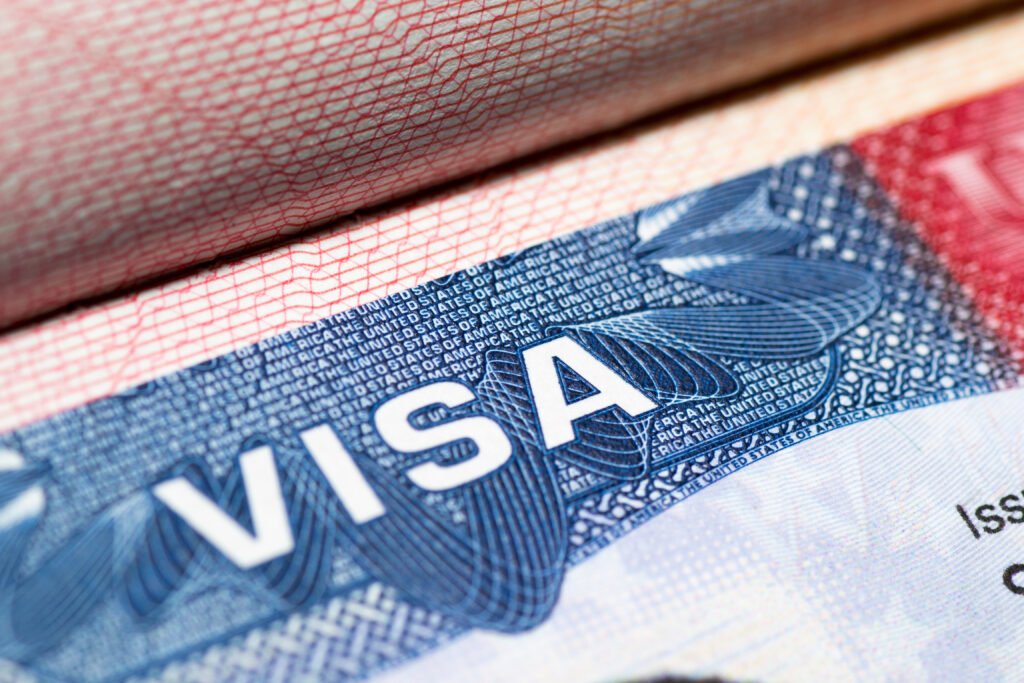
Visa overstay is a serious issue that affects thousands of individuals in the United States each year. Whether intentional or accidental, overstaying a visa can result in a range of legal consequences, including removal proceedings, bars to reentry, and other immigration-related penalties. For individuals and families in Houston, Texas, it is essential to understand how federal immigration laws treat overstays, and what legal remedies may be available under specific circumstances. Suday Law provides insight into how these situations can be addressed, emphasizing the importance of timely legal counsel and strategic action.
Understanding Visa Overstay
A visa overstay occurs when a noncitizen remains in the United States beyond the expiration date of their authorized stay as indicated on their Form I-94, Arrival/Departure Record. It is important to distinguish between the expiration date on the visa stamp in the passport and the date listed on the I-94. The visa itself is only an entry document, while the I-94 determines how long a person is permitted to remain in the country.
An individual can overstay in various visa categories, including tourist visas, student visas, employment visas, and others. Overstays may occur for a variety of reasons, including lack of awareness, personal emergencies, employment opportunities, or delays in legal proceedings. Regardless of the cause, the consequences can be significant.
Legal Consequences of Visa Overstay
Overstaying a visa triggers immigration violations under federal law and can result in the following legal consequences:
Unlawful Presence and Reentry Bars
Unlawful presence refers to the period during which an individual remains in the United States without legal authorization. The Immigration and Nationality Act (INA) imposes strict penalties for unlawful presence:
- Individuals who accrue more than 180 days but less than one year of unlawful presence and then leave the United States are subject to a three-year bar from reentry.
- Individuals who accrue more than one year of unlawful presence and depart are subject to a ten-year bar.
- Individuals who reenter or attempt to reenter without proper authorization after accruing one year or more of unlawful presence may face a permanent bar under INA § 212(a)(9)(C).
These bars can only be waived under specific conditions and require filing complex legal applications, often involving waivers and consular processing.
Ineligibility for Change or Extension of Status
A person who overstays a visa becomes ineligible for a change or extension of status in most cases. For example, someone on a visitor visa who overstays typically cannot later apply to switch to a student visa from within the United States. Such requests are generally denied unless the applicant can demonstrate extraordinary circumstances that were beyond their control.
Cancellation of Visa and Future Visa Denial
When a person overstays a visa, the visa in their passport is automatically considered void under INA § 222(g). In addition, consular officers may deny future visa applications on the basis of the previous overstay, especially if there are no strong ties to the home country or if the applicant cannot demonstrate that they will comply with future visa terms.
Removal Proceedings
If encountered by Immigration and Customs Enforcement (ICE) or other authorities, individuals who have overstayed may be placed in removal proceedings before an immigration judge. During these proceedings, the Department of Homeland Security (DHS) seeks to deport the individual from the United States. Depending on the individual’s circumstances, it may be possible to contest removal or apply for relief such as asylum, cancellation of removal, or adjustment of status.
Special Considerations in Houston, Texas
Houston is one of the most diverse cities in the United States and has a large immigrant population. It is served by the Houston Immigration Court, U.S. Citizenship and Immigration Services (USCIS) field offices, and consular representatives from various countries. Local conditions, including court backlogs and enforcement priorities, can influence how visa overstays are handled.
The attorneys at Suday Law have experience navigating the nuances of immigration law within the Houston jurisdiction and can help clients develop effective legal strategies. Whether an individual has been in the United States unlawfully for a few months or several years, legal counsel is essential to avoid further complications.
Potential Remedies for Visa Overstay
While the consequences of overstaying a visa are serious, there are several legal avenues that may provide relief, depending on the individual’s specific situation.
Waivers of Unlawful Presence
Certain individuals may apply for a waiver of unlawful presence by demonstrating that their U.S. citizen or lawful permanent resident spouse or parent would suffer extreme hardship if the applicant is denied admission. These waivers are typically filed in conjunction with an immigrant visa application and require a strong evidentiary showing.
The I-601A Provisional Unlawful Presence Waiver allows eligible applicants to apply for a waiver before leaving the United States for consular processing. This is a critical tool that can reduce the risk of being denied reentry due to unlawful presence bars.
Adjustment of Status Through Family-Based Petitions
Individuals who are immediate relatives of U.S. citizens—such as spouses, parents, or unmarried children under 21—may be eligible to adjust their status in the United States even after a visa overstay, provided they entered the country legally. This adjustment allows them to become lawful permanent residents without leaving the country. However, this remedy is generally not available to those who entered unlawfully unless covered by special provisions such as INA § 245(i).
Cancellation of Removal
For individuals placed in removal proceedings, cancellation of removal may be an option. This form of relief requires a showing that the individual has been in the United States for a continuous period of ten years, has good moral character, and that removal would cause exceptional and extremely unusual hardship to a qualifying U.S. citizen or lawful permanent resident family member.
Asylum or Other Humanitarian Relief
Some individuals may qualify for asylum, withholding of removal, or protection under the Convention Against Torture if they can establish a well-founded fear of persecution in their home country. Humanitarian protections such as Temporary Protected Status (TPS), Deferred Action for Childhood Arrivals (DACA), or U visas for victims of certain crimes may also offer relief, depending on eligibility.
Legalization and Reform Programs
Occasionally, immigration reform initiatives or legalization programs provide relief to individuals who have overstayed their visas. While no comprehensive reform is currently in place, future legislation could create new pathways for those with long-term residence in the United States. Consulting with an immigration attorney is crucial to staying informed about evolving legal options.
Importance of Legal Representation
Given the complexity of immigration law and the serious consequences of visa overstay, professional legal guidance is essential. A qualified immigration attorney can:
- Assess eligibility for available forms of relief
- File appropriate applications with supporting documentation
- Represent individuals in removal proceedings
- Navigate consular processing and waiver applications
- Communicate with USCIS, ICE, and immigration courts on the client’s behalf
Each case is unique, and success often depends on the strength of the evidence, the specific legal issues involved, and the experience of the legal representative. At Suday Law in Houston, clients benefit from personalized legal strategies tailored to their circumstances and goals.
Proactive Steps to Avoid Overstay
For those currently in the United States on temporary visas, taking proactive steps can help avoid the risks associated with overstay:
- Monitor the expiration date on the I-94 form and set reminders
- Apply for extensions or changes of status well before expiration
- Keep documentation of attempts to maintain legal status
- Seek legal advice before making decisions about remaining in the United States beyond the authorized period
Prompt action can make a significant difference in preserving future immigration options and avoiding long-term penalties.
Seeking Immigration Representation? Call Suday Law
Visa overstay is a serious matter that can jeopardize an individual’s ability to live, work, or travel to the United States in the future. However, legal remedies do exist, and with timely intervention, it is often possible to resolve immigration status issues. The legal team at Suday Law in Houston, Texas is committed to helping clients understand their rights and pursue the most effective strategies for achieving lawful status. Whether facing removal proceedings or seeking guidance on available waivers, individuals should consult experienced immigration counsel without delay.

